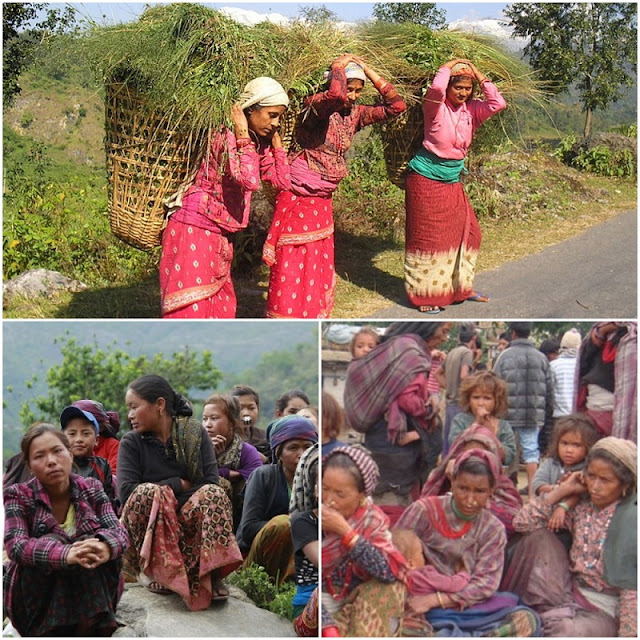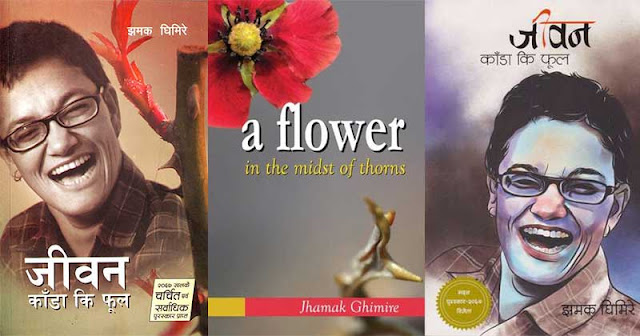MYTH AND REALITY OF WOMAN’S EMPOWERMENT
 |
| Many women in the country feel that they are discriminated and most of their rights are limited within the book of the law. |
International Women's Day does focus on equal rights, equal opportunities, and progress for all. The event is celebrated all over the world with much excitement and hope. However, a bitter reality is that millions of women all over the world do not enjoy equal rights. Much of the legal provisions are limited to the book of law and those laws are poorly implemented.
Much has been talked about and written about women's empowerment. With the passage of time, new laws are also enacted to give power to them. The women have also been eulogized for their role in society.
Even Holy Scriptures have praised them with an open heart. In a Hindu society where a woman is regarded as Devi and Shakti, the most cherished symbol of love and creation. A woman is said to have a creative inspiration for poets and artists. She has therefore been installed on the highest pedestal of reverence in our society.
 |
| There are many sectors in the country where women are openly discriminated. Photo Credit: wunrn.com |
If all this is true then there should not be any wrong with the women of our society. But the reality is not what we see and read…it is rather different and sometimes painful as well.
Her dignified status has been confined within the books. It is a pity that all these years, she has been reduced to Dasi. In the tradition-ridden society, one like ours where her position has not improved.
She is considered no better than a pair of shoes, which may be redundant or changed just at the will of a man. From early on, she remains under the command or control of a man. He may be her father, brother, or husband.
Hence, the reality is that a woman has occupied an inferior position to men. She is subjected to live a routine life of childbearing, cooking, cleaning, washing clothes, and serving the family members. She can hardly be able to free herself from such household tasks.
In the cities, a small percentage of educated women are employed in the offices, yet the percentage of employment remains very low. There is no denying the fact that better education and vocational training will improve their potential and equip them for both wages and self-employment.
At the same time, it becomes imperative for the government to safeguard the fundamental rights of women and make provisions in the law for uplifting their status in order to establish equality in the distribution of work and wages.
The status of women in today's Nepal can't be overlooked. All efforts should be made to establish the significant role that she can play in the progression of oneself and the society at large. It is evident that literacy alone will make women realize their potential and equip them for better wages and employment.
 |
| Many Nepali women are even not being able to get those benefits that have been secured in the constitution of Nepal. Photo Credit: mei.edu.com |
International Women's Day does focus on equal rights, equal opportunities, and progress for all. The event is celebrated all over the world with much excitement and hope. However, a bitter reality is that millions of women all over the world do not enjoy equal rights. Much of the legal provisions are limited to the book of law and those laws are poorly implemented.
This is the reason why women's status has not improved so much. Legal equality is not all that is sufficient. Women must be recognized as free individuals like their counterparts in every domain. This may be the right beginning towards the equal status of women vis-à-vis their male counterparts.
Nepali women who constitute over 50 percent of the total population are still backward and underprivileged in many fields. Poverty, illiteracy, and superstition are much to blame for their miserable condition.
At the same time, the age-old patriarchal social structure and gender discrimination are equally responsible for keeping them behind and backward. Hence, the darkness of ignorance could be repelled only through the light of education. The literacy rate of Nepali women stands about 42 percent whereas it is 65 percent in the case of men. Quite surprisingly the overall literacy status of women has not improved even after the introduction of free education to girls.
Nepali women are highly prone to domestic violence. They are restricted to stand equal to their male counterparts. They are not allowed to present in many religious rituals. They are treated like untouchables during the menstruation period. They are thrashed or even killed for dowry. They are treated badly only if they bore a baby girl. The majority of girls are made to work much longer time than boys. This is the reason why at primary level girl's enrolment level is only 61 percent whereas boys are 97 percent. Under such circumstances, only 42 percent of girls complete primary level education as against 65 percent among boys.
The government had aimed to eliminate gender discrimination by 2015, but it is now 2019 and the situation has turned only bad to worse. Such efforts can never be possible without a social and educational revolution in the country. Without social awareness and pragmatic education, women's empowerment will remain a hollow slogan.
Quite disappointingly, the organizations like Human Rights Commission, National Women's Commission, National Dalit Commission, and several NGOs and INGOs have performed poorly. Nepal had ratified the bill on domestic violence and a number of other international legal instruments relating to gender equality, but the majority of women continue to confront discrimination in jobs, and their voices go unheard.
More, the state laws are prejudiced against women, and they lack political representation, said the Asia-Pacific Human Development Report released by the United Nations Development Programme (UNDP). According to the report, the position of women has not changed significantly. Their quest to stand equal with men in terms of opportunities and rights is much elusive as ever as always.
Nevertheless,
over the last decade, Nepal has made significant progress to improve the overall status of women in the country. But a lot more has to be done. Owing to
legal equality, women got a chance to make all-round progress in various
professions. Today they are working outside homes in various capacities. But
this has become possible to only some privileged women of our society who live
in urban areas. Life has still not changed for many rural women in
Let's not forget that poverty and illiteracy are the two most devilish social evils which keep women backward. Poverty eradication can be possible through the participation of women in the campaign for compulsory education. Technical and vocational education must be made compulsory subjects in the course for women.
The poverty rate will go down when more and more women receive vocational education. Last but not the least, women's participation in policymaking is of utmost necessity. Only making new legal provisions are not enough, its proper implementation is even more important.
To triumph over gender inequality, the women must be inculcated with a sense of self-respect in their minds. Women of all regions, classes, and caste should work together to strengthen their position and status.
 |
| LB Thapa is with his wife Goma Gurung. LB Thapa is a Pokhara-based freelance writer and author. |
LEGAL
WARNING
All rights reserved. No articles and photos published in this blog can be reproduced without the prior written permission of the author. Legal action will be taken immediately if any articles or photos are reproduced without the author’s knowledge. However, articles or photos can only be reproduced by duly mentioning the author’s name and the blog's name (read2bhappy.blogspot.com). The author must be informed by sending an email. All articles and the photos published in this blog are the copyright property of LB THAPA.










.png)
Well written article about the subject of Women empowerment.
ReplyDeleteDinesh Pathak
Kathmandu
Thank you Mr. Dinesh Pathak for finding my article worth reading. Thanks for your comment.
DeleteI agree with the writer. You have written it very nicely. A thought provoking article. Women of any country are discriminated. Women's related many subject matters have been taken for granted.
ReplyDeleteProf. Bandana Upadhya
New Delhi, India
Thank you very much Prof. Bandana Upadhya. I am really glad that you found my article a good read. Your appreciation has given me joy and it is also an encouragement to work even better in days to come.
DeleteWell written article. I really enjoyed reading the article.
ReplyDeletePrabin Pandey
Pokhara
This is the best article I have ever read related to the condition of Nepali women. I personally recommend everyone to read this article.
ReplyDeleteDamodar Paudel
New York, USA